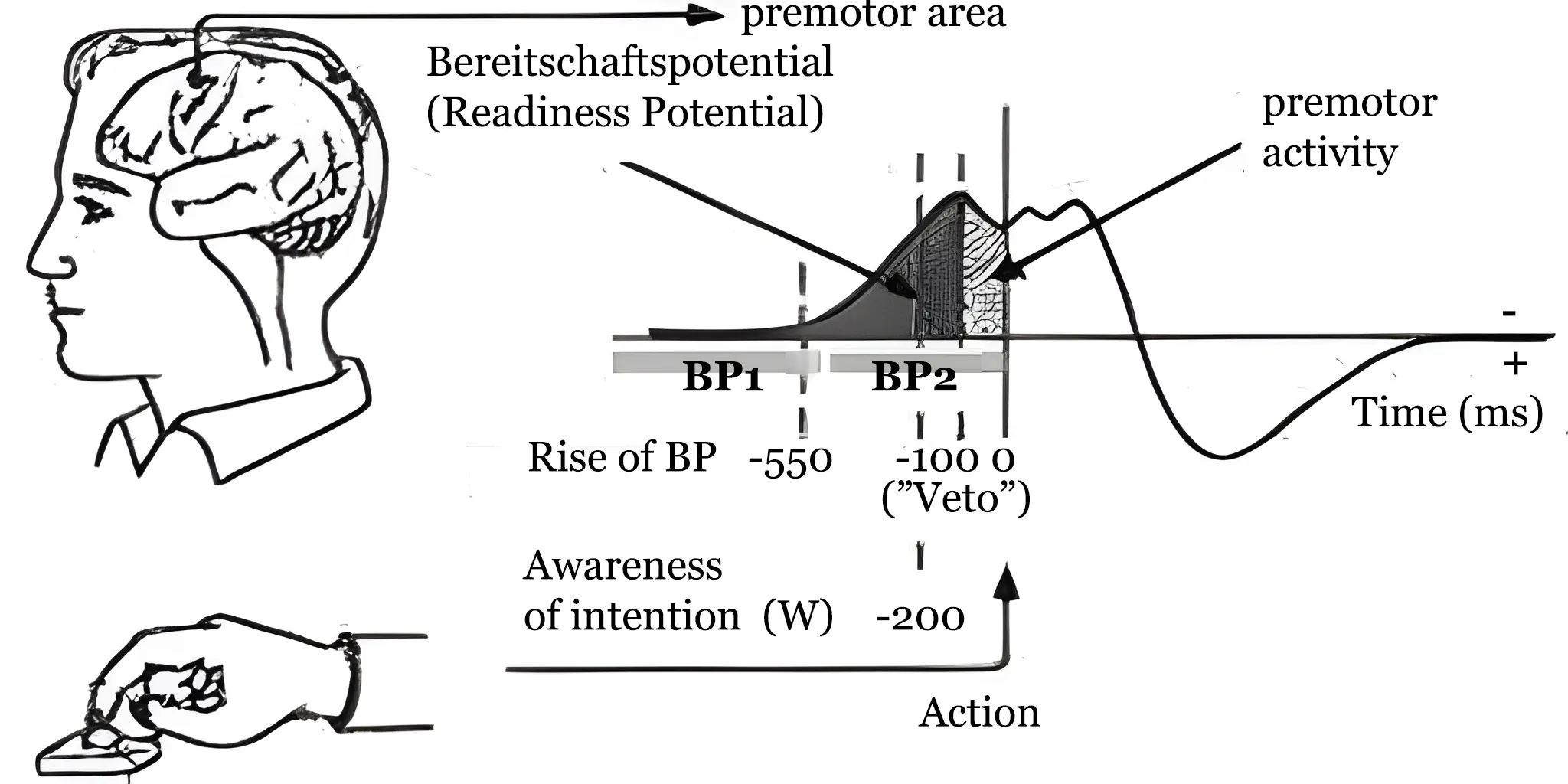Martial Arts and the Neuroscience of Free Will
From 武神館兜龍 Bujinkan Toryu by admin
Introduction
I will try to explain Japanese martial arts and the Neuroscience of Free Will in this article. The three approaches of Go no sen, sen no sen, and sen sen no sen have been used for centuries to develop effective strategies for both offensive and defensive manoeuvres.
However, the scientific study of human behaviour has challenged our traditional understanding of free will and decision-making, calling into question how much control we have over our actions. In recent years, advances in neuroscience have shed new light on the nature of free will and how these martial arts concepts may relate to it.
The Three Timings in Japanese Martial Arts
Let’s start with the three timings.
後の先 Go no sen is a reactive strategy, where the practitioner waits for the opponent to initiate the attack before countering.
先の先 Sen no sen is a more proactive approach, where the practitioner responds to the opponent’s attack as it is happening.
先先の先 Sen sen no sen is the most proactive strategy, where the practitioner initiates the attack before the opponent has a chance to act.
All three of these strategies require different levels of skill, awareness, and timing. The choice of strategy can depend on a variety of factors, such as the practitioner’s level of experience, the nature of the opponent’s attack, and the context of the situation.

Neuroscience and Free Will
The question of free will has been a topic of debate among philosophers and scientists for centuries. According to traditional views, we have the ability to make decisions freely, without being determined by outside forces. However, recent research in neuroscience has suggested that our decisions may not be as freely made as we previously thought.
One of the key findings in this field is the Bereitschaftspotential, a phenomenon discovered by Hans Helmut Kornhuber and Lüder Deecke in the 1960s. This term refers to the readiness potential that occurs in the brain before a voluntary movement is made. In other words. The brain shows activity related to a movement before the person is aware of having made a decision to move.
The Relationship Between the Three Timings and Free Will
The concepts of free will and neuroscience may have a relationship with the three timings in Japanese martial arts. One possibility is that the timing choice reflects a decision-making process in the brain. For instance, the decision to use a reactive strategy like go no sen may involve a different neural process than the decision to use a proactive strategy like sen sen no sen. These distinct neural processes might be reflected in the Bereitschaftspotential or other neural signals associated with decision-making.
Another possibility is that the martial arts concepts of timing are not related to free will in the traditional sense. Instead, they reflect a different kind of agency or control over one’s actions. For example, a skilled practitioner using all three timings might respond to an attack in a manner not predetermined by unconscious processes in the brain. They could instead choose a timing that is best for the situation, based on their training and experience.
Personal Experiences
We have all witnessed Hatsumi Soke’s ability to move swiftly when attacked. Without an understanding of the Bereitschaftspotential as described earlier, it may appear as though the opponent is assisting him. Personally, I have also experienced similar situations with Hatsumi Soke and others, wherein I had already made the decision to attack but the person I intended to attack had already begun moving. At that point, it was too late for me to change my plans.
On one occasion, Noguchi Sensei stopped my movement three times in a row by ‘flinching’ at the exact moment when I made the decision to attack. I couldn’t help but stop and freeze in my tracks. He laughed at my frustration, and that was a very valuable lesson.
Conclusion
To conclude, the three timings in Japanese martial arts and the neuroscience of free will are both captivating subjects that offer a glimpse into the human behaviour. Though the relationship between them remains incompletely comprehended, further exploration may help elucidate how our actions are determined and how we can cultivate effective decision-making strategies in various situations.
The post Martial Arts and the Neuroscience of Free Will appeared first on 武神館兜龍 Bujinkan Toryu.…